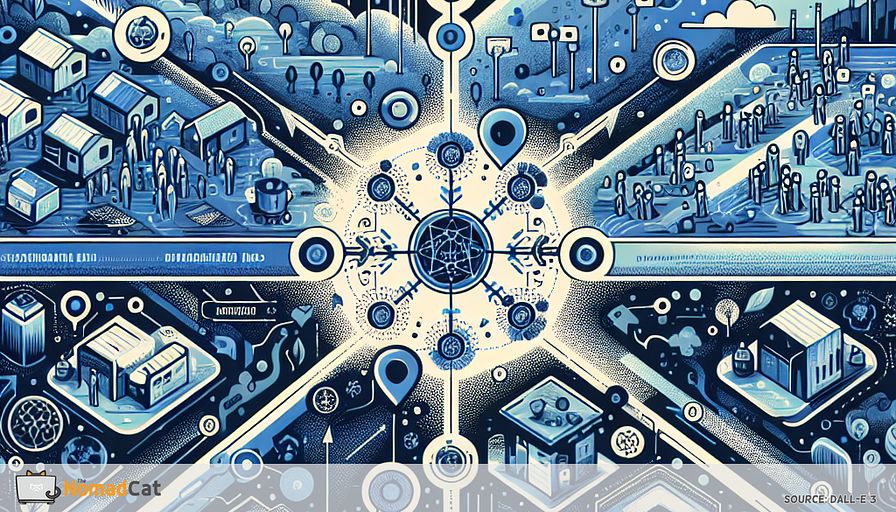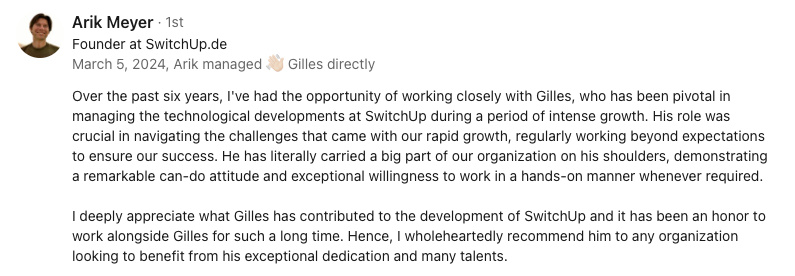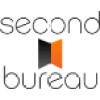Abstract:
The article explores how decentralized recycling networks are transforming waste management by empowering local communities to handle their own recycling needs. By moving away from large, centralized facilities to localized micro-hubs, communities and small businesses gain control over their recycling processes, leading to increased efficiency and community involvement. Technologies like blockchain and IoT play a significant role in these networks by enhancing transparency, trust, and operational efficiency. Blockchain provides a secure, tamper-proof ledger of recycling activities, reducing fraud and building trust among stakeholders, while IoT offers real-time data to optimize waste management. The decentralized approach also offers environmental benefits by reducing transportation distances and emissions, exemplified by projects like Amsterdam's neighborhood recycling centers. Success stories such as the Netherlands' Circularise and the Plastic Bank initiative highlight how technology can drive community engagement and sustainability. The article also discusses challenges like regulatory hurdles and financial barriers, suggesting that partnerships and innovative business models are essential for startups entering this field. Ultimately, decentralized recycling networks represent a sustainable future, fostering resilience, adaptability, and local empowerment in waste management.
Recycling is becoming a key part of community life through decentralized recycling networks. If traditional recycling systems have left you feeling frustrated or concerned about their environmental toll, you're definitely not alone. Decentralization offers a new way forward, empowering local communities and businesses to handle their own waste. Picture your neighborhood running its own recycling operations, tailored to local needs. In this article, we examine how decentralized recycling networks, with the help of technologies like blockchain and IoT, are transforming the recycling scene to boost participation, sustainability, and resilience.
Decentralized Recycling Networks: A New Frontier
Understanding Decentralized Recycling Networks
Decentralized recycling moves away from big, remote facilities to smaller, local ones. These micro-hubs let community organizations and small businesses manage recycling on their own. This local control improves efficiency and gets more people involved. Each micro-hub can adjust its operations to fit local needs, making recycling more effective. From my tech experience, I’ve seen how decentralization often leads to better efficiency and local empowerment, making recycling more focused on community needs.
Micro-hubs are key to decentralized networks, offering community-driven solutions to local waste problems. They encourage local involvement, fostering a sense of ownership and responsibility among community members, which can lead to more recycling and sustainable practices. Local businesses, for example, can set up recycling programs specific to the waste they produce, making recycling processes more efficient. As we explore how these systems work with technology, it's clear that decentralization could make recycling a more regular part of daily community life.
The Role of Blockchain and IoT
Blockchain technology enhances trust and transparency in decentralized recycling networks. It uses a distributed ledger to record transactions in secure, tamper-proof blocks, documenting all recycling activities clearly. This transparency builds trust among participants by providing a verifiable record of transactions, allowing stakeholders to trace recycled materials from collection to processing. Such systems also reduce fraud and corruption risks by eliminating the need for a central authority. Blockchain is a foundational technology that boosts accountability in recycling networks, giving startups a competitive edge by streamlining operations and reducing costs.
IoT technologies optimize recycling by providing real-time data collection and analysis. IoT devices monitor waste collection points, track bin fill levels, and even help sort materials with AI and sensors. This real-time data lets recycling operators optimize collection routes, reduce unnecessary pickups, and improve recycling efficiency. IoT integration helps communities manage recycling efforts better, leading to less waste, lower costs, and more recycling. These technologies significantly improve recycling practices, supporting sustainability and community engagement goals.
Advantages of Decentralization in Recycling
Resilience and Adaptability
Decentralized recycling networks are resilient due to their local focus and community engagement. Unlike traditional systems that may be disrupted by global supply chain issues, these networks rely more on local resources and solutions. This local approach minimizes the need for long-distance transportation and centralized facilities, reducing risks. By embedding recycling hubs within communities, these networks encourage local participation, allowing them to respond quickly to changes or challenges. They're not only adaptable but also well-positioned to innovate, trial, and implement new technologies suited to specific waste management needs.
Decentralized systems are also better at handling regulatory and market shifts. As waste management regulations evolve, localized systems quickly adapt to new rules, often leading to innovative recycling practices. They leverage their flexibility to adopt new technologies and strategies tailored to community needs, maintaining sustainability and efficiency even as external conditions change.
Environmental Benefits
Reduced Transportation Distances: Decentralized recycling networks reduce the environmental impact by cutting transportation distances. Processing recyclables closer to their source saves fuel and cuts emissions. Local processing can save up to 30% in transportation costs and reduce emissions by 20-25%. Projects like Amsterdam's neighborhood recycling centers have shown that local processing can reduce CO2 emissions from transportation by 15%.
Sustainable Waste Management: These environmental benefits highlight how decentralized networks support sustainable waste management practices and contribute to climate goals.
Blockchain and IoT Integration in Recycling
Blockchain for Transparency
Blockchain brings transparency and security to decentralized recycling networks with its immutable ledger system. This ledger records transactions in tamper-proof blocks, documenting all recycling activities. This transparency is crucial for auditing, as it provides clear, traceable records of transactions, reducing fraud and corruption risks. Blockchain's transparency fosters trust among stakeholders, essential for collaboration. Smart contracts, part of blockchain technology, further enhance trust by automating processes like payments for recycled materials, streamlining operations.
Smart contracts automate transactions, reducing the need for intermediaries, cutting costs, and speeding up recycling. They ensure timely and accurate transaction processing, enhancing efficiency and reliability in recycling networks. By considering IoT, it's evident how these technologies optimize recycling operations together.
IoT for Real-Time Data Management
IoT technology enhances data collection and analysis in decentralized recycling networks. IoT sensors monitor bin fill levels and optimize collection routes. This real-time monitoring allows for more strategic collection schedules, reducing unnecessary pickups and cutting costs. IoT boosts sorting accuracy and manages the supply chain effectively. Sensors and AI help sort materials accurately, essential for recycling efficiency. This precision reduces contamination, improving recycled outputs. IoT also tracks materials throughout the supply chain, ensuring timely delivery and processing, boosting operational efficiency.
Success Stories in Decentralized Recycling
European Initiatives
The Circularise project in the Netherlands uses blockchain to enhance recycling transparency by tracking plastics' lifecycle. This increases accountability among manufacturers and consumers, reducing fraud and making recycling more reliable. In Portugal, the RecyChain project improves recycling processes' traceability and efficiency by integrating advanced data management technologies. This enhances material tracking, aligning with European sustainability initiatives.
Community and Startup-Led Projects
The Plastic Bank initiative uses blockchain to incentivize recycling in various countries by offering digital tokens for recycled materials, promoting a circular economy. This approach not only tracks recycling but also engages communities, increasing participation and tackling plastic waste globally. Recycleye, a UK startup, uses AI and IoT to improve sorting and data management in recycling. Advanced sensors and machine learning enhance sorting accuracy, reducing contamination and optimizing recycling. These innovations demonstrate how technology can streamline operations, minimize waste, and boost recycling rates, fostering a sense of global community and shared responsibility.
Overcoming Challenges in Decentralized Recycling
Navigating Regulatory Hurdles
Decentralized recycling networks often face regulatory and compliance challenges. Meeting environmental standards is crucial to prevent pollution and ensure sustainable practices. Collaboration with local authorities is key to overcoming these hurdles. By working with local governments, networks can better understand and meet regulations, fostering innovation. Simplifying waste classification and permitting processes is also important for effective operations. Municipal collaboration can simplify procedures and support efficient network functioning.
Tackling Financial and Technological Barriers
Setting up decentralized recycling networks involves significant initial costs, which can be a barrier. Strategic partnerships can ease these costs by providing resources, grants, and subsidies. Collaborations with government and private sectors help make networks financially viable. Technology adoption also poses challenges, requiring extensive training to ensure personnel can use advanced tools and systems. Training enhances operational efficiency, reduces errors, and promotes innovation. Startups can benefit from forming alliances with tech companies to access cutting-edge solutions and expertise, ensuring scalability and sustainability.
Practical Steps for Startups
Developing a Sustainable Business Model
Startups need a sustainable business model to succeed in decentralized recycling networks. Aligning with circular economy principles ensures long-term viability and sustainability. These principles emphasize reusing, refurbishing, and recycling materials, reducing waste and environmental impact. Innovative business models encourage material reuse and recycling, fostering sustainable growth. Using methods like deposit-return schemes or digital reward platforms can motivate community participation in recycling.
Leveraging Partnerships and Technology
Strategic partnerships are crucial for startups to scale decentralized recycling operations. Collaborating with governments and organizations provides resources, funding, and expertise. These partnerships expand reach and impact, leveraging shared knowledge and infrastructure. Technology integration is also key, with tools like blockchain and IoT streamlining processes and boosting transparency. Blockchain tracks materials securely, ensuring all stakeholders can verify recycled goods' lifecycle. IoT devices provide real-time data on waste levels and collection routes, optimizing logistics and reducing costs. By embracing these technologies, startups can make decentralized recycling networks more reliable and effective.
Decentralized recycling networks are leading the way to a sustainable future by empowering communities to manage waste locally. With technologies like blockchain and IoT, these networks enhance transparency, efficiency, and community involvement in recycling. The resilience and adaptability of local micro-hubs offer solutions to supply chain issues, reducing emissions and costs. Consider how decentralized recycling could change your community and think about the potential for innovation and collaboration in waste management.














